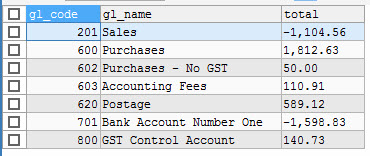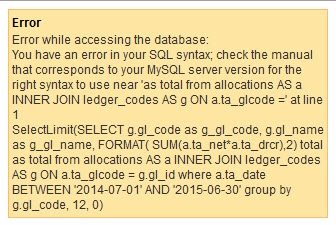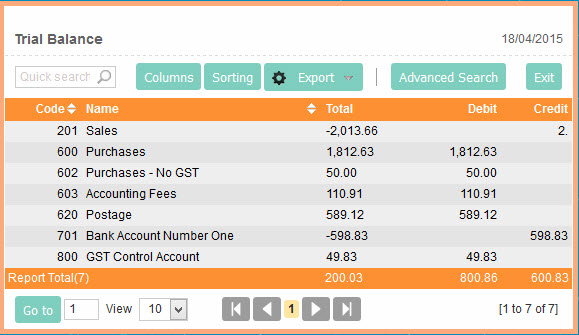Hi All,
I wish to have a grid application that displays a trial balance from a double entry bookkeeping system. I have worked out the SQL statement to total each general ledger code, but I cannot yet work out how to filter by two dates (normally the financial year start and finish dates)
Here is the SQL statement
SELECT
g.gl_code,
g.gl_name,
FORMAT( SUM(a.ta_net*a.ta_drcr),2) total
FROM
allocations AS a
INNER JOIN
ledger_codes AS g ON a.ta_glcode = g.gl_id
GROUP BY
g.gl_code
The resultant query result is in the image
Can anyone help me to filter the sum by dates
Thanks
Tony


 .
.
